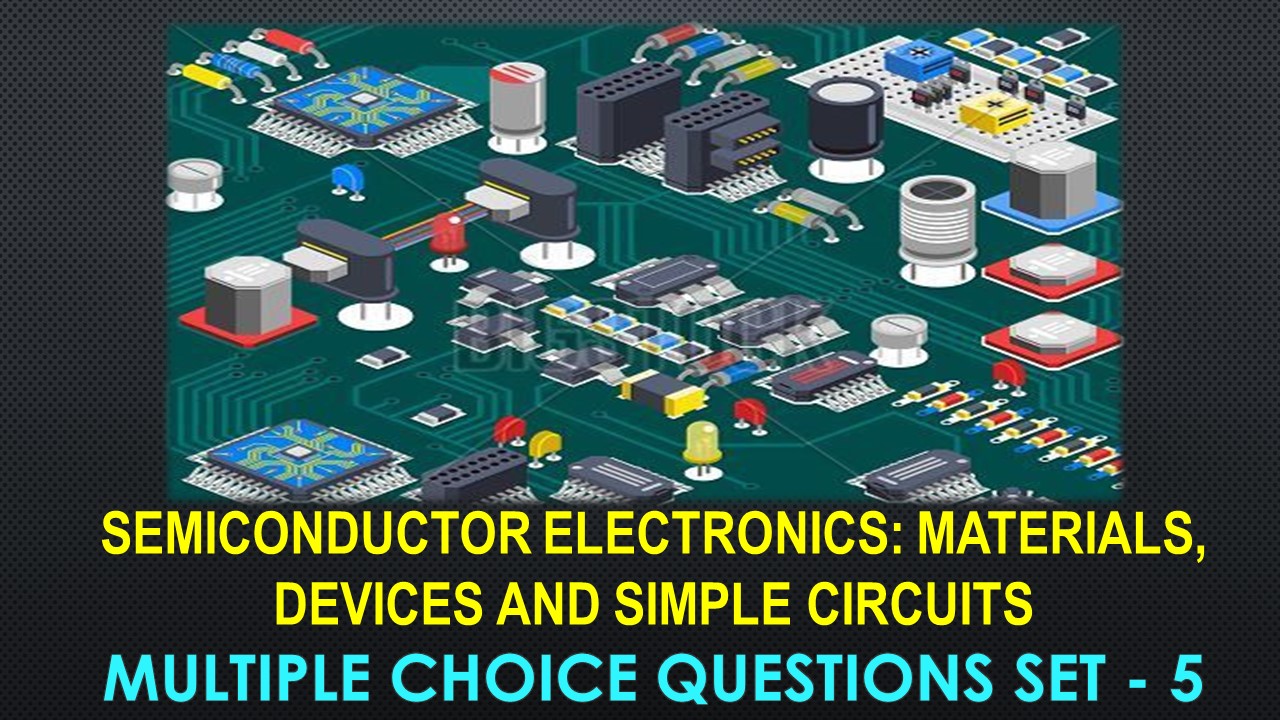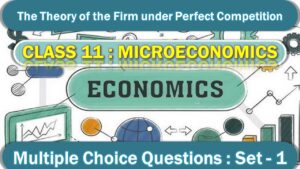CBSE Class 12 Semiconductor Electronics Materials Devices and Simple Circuits Multiple Choice Questions with Answers. MCQ Questions Class 12 Semiconductor Electronics Materials Devices and Simple Circuits with Answers Is Prepared Based on Latest Exam Pattern. Students can solve NCERT Class 12 Semiconductor Electronics Materials Devices and Simple Circuits MCQs with Answers to know their preparation level.
Students who are searching for NCERT MCQ Questions for Class 12 Semiconductor Electronics Materials Devices and Simple Circuits with Answers are compiled here to get good practice on all fundamentals. Know your preparation level on MCQ Questions for Class 12 Semiconductor Electronics Materials Devices and Simple Circuits with Answers. You can also verify your answers from our provided MCQ Class 12 Semiconductor Electronics Materials Devices and Simple Circuits with Answers. So, ace up your preparation with MCQ of Class 12 Physics Examinations.
MCQ Questions Class 12 Semiconductor Electronics Materials Devices and Simple Circuits with Answers - Set - 5
Question 1:
Carbon, silicon and germanium atoms have four valence electrons each. Their valence and conduction bands are separated by energy band gaps represented by (Eg)C, (Eg)Si and (Eg)Ge respectively.
Which one of the following relationships is true in their case?
(a) (Eg)C > (Eg)Si
(b) (Eg)C < (Eg)Si
(c) (Eg)C = (Eg)Si
(d) (Eg)C < (Eg)Ge
Correct Answer – (A)
Question 2 :
What is the number of possible crystal systems?
(a) 5
(b) 7
(c) 14
(d) 16
Correct Answer – (B)
Question 3 :
A p-type semiconductor is:
(a) negatively charged
(b) positively charged
(c) uncharged
(d) None of these
Correct Answer – (C)
Question 4 :
Crystal diode is:
(a) amplifying device
(b) fluctuating device
(c) non-linear device
(d) linear device
Correct Answer – (C)
Question 5 :
Zener diode is used for:
(a) producing oscillations in a oscillator
(b) amplification
(c) stabilisation
(d) rectification
Correct Answer – (C)
MCQ Questions Class 12 Semiconductor Electronics Materials Devices and Simple Circuits with Answers
Question 6 :
When using a triode, as an amplifier, the electrons are emitted by
(a) grid and collected by cathode only
(b) cathode and collected by the anode only
(c) anode and collected by cathode only
(d) anode and collected by the grid and by cathode.
Correct Answer – (B)
Question 7 :
The material most commonly used to manufacture electronic solid state devices is :
(a) copper
(b) silicon
(c) germanium
(d) aluminium
Correct Answer – (B)
Question 8 :
The part of a transistor which is heavily doped to produce a large number of majority carriers is :
(a) base
(b) emitter
(c) collector
(d) None of these
Correct Answer – (B)
Question 9 :
In semi conductor, at room temperature :
(a) the valence bond is partially empty and the conduction band is partially filled
(b) the valence band is completely filled and the conduction band is partially filled
(c) the valence band is completely filled
(d) the conduction band is completely empty
Correct Answer – (A)
Question 10 :
Winch of the following gate is not an universal gate?
(a) OR
(b) NOT
(c) AND
(d) NAND
Correct Answer – (D)
- NCERT Solutions Class 11 Chemistry Chapter 1 : Some Basic Concepts of Chemistry
- NCERT Solutions Class 11 Chemistry Chapter 2 : Structure Of The Atom
- NCERT Solutions Class 11 Chemistry Chapter 3 : Classification of Elements and Periodicity in Properties
- NCERT Solutions Class 11 Chemistry Chapter 4 : Chemical Bonding and Molecular Structure
- NCERT Solutions Class 11 Chemistry Chapter 5 : States of Matter
- NCERT Solutions Class 11 Chemistry Chapter 6 : Thermodynamics
- NCERT Solutions Class 11 Chemistry Chapter 7 : Equilibrium
- NCERT Solutions Class 11 Chemistry Chapter 8 : Redox Reactions
- NCERT Solutions Class 11 Chemistry Chapter 9 : Hydrogen
- NCERT Solutions Class 11 Chemistry Chapter 10 : The s-Block Elements
- NCERT Solutions Class 11 Chemistry Chapter 11 : The p-Block Elements
- NCERT Solutions Class 11 Chemistry Chapter 12 : Organic Chemistry: Some Basic Principles and Techniques
- NCERT Solutions Class 11 Chemistry Chapter 13 : Hydrocarbons
- NCERT Solutions Class 11 Chemistry Chapter 14 : Environmental Chemistry




